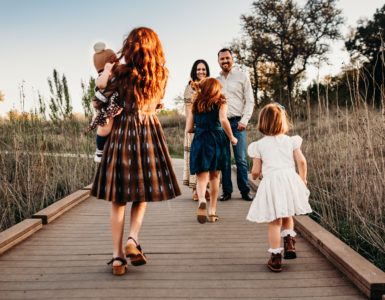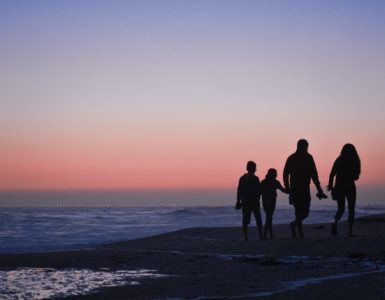If you have any involvement with the adoption community or interested in adoption, you may have heard the term “adoption registry.” If you are anything like me, you had no clue what it was at first.
Funny side story, I thought it was a baby registry, like when you register for baby items when you are pregnant but for adoptions. Ha, I couldn’t be further from being right!
I now, of course, know that an adoption registry is a forum where adoptees and their birth family can be reunited. In this article, I will help you discover more about what an adoption registry is, where you can find one and why you may one day need it.
As always, I will preface this article by saying that it is written from my own personal experience and research and does not constitute as legal advice. If you need more information about adoption registry, contact a local adoption agency or attorney. For now, we will cover the basics of the who, what, when, where, and why of adoption registries.
Who:
Who benefits from an adoption registry and who does an adoption registry apply to? An adoption registry really can benefit both sides of the adoption, the birth family and the adoptee. Many adoptees will spend a lot of time trying to find their birth families. Having access to an adoption registry is very beneficial in helping them locate their birth family. Similarly, birth mothers and/or fathers spend a lot of time searching for a child they may have placed in an adoption. This usually occurs when the adoption is closed or maybe semi-opened and contact is lost.
Adoption registries provide a safe place for both birth parents and adoptees to try to locate the other. In the same light, adoption registries apply to anyone who is eager to locate their biological parents or their adopted child. This can be domestic adoptions or international adoptions. Many have said it is harder for international adoptions to locate their adopted child or biological parents as some countries do not have very good record keeping of the adoption or statistical data to help locate them.
What:
What is an adoption registry? As stated above, an adoption registry is an official place where adoptees and birth families can be reunited. Adoption registries can be free or some may charge for their services. Adoption registries can be facilitated by government agencies, private business or non-private organizations. A simple Google search will result in several different online resources for adoption registry. Adoption.com has its own adoption reunion page and is the most-used adoption website with over 420,000 adoption reunion profiles. Their search and reunion guide helps provide step-by-step support to adoptees who are trying to locate biological relatives.
Adoption registries usually include their name, date of birth, and place of birth. This is one way people are matched. You can search for certain criteria and if they align, the registry will probably have a process in place for them to connect. Some states have a written notice that is sent to both parties authorizing the release of contact information. Some states offer contact information on the website or information to contact the Vital Records Department. There are a lot of online resources to help with your search as well. I urge you to do your research and find a reputable site that is able to help you. If you want to find something that is more local to your area, you can always check with an adoption agency or adoption attorney to help point you in the right direction.
Another form of an adoption registry is something called a “putative father registry.” A putative father is a man who claims to be the father or is alleged to be the father to a child who is born to a woman to whom he is not married to at the time the child is born. Legally, paternity has not been established yet. Every state has a provision for fathers to voluntarily acknowledge paternity if a child is born outside of marriage.
The Federal Social Security Act requires states to have a procedure in place for mothers and putative fathers to acknowledge paternity, this usually includes a hospital-based program for the voluntary acknowledgment of paternity. They will be given notice of the alternative and legal consequences that arise from signing an acknowledgment of paternity. So far, in the United States, at least 24 states have established paternity registries where putative fathers can indicate their intention to claim paternity, which include: Alabama, Arizona, Arkansas, Delaware, Florida, Georgia, Illinois, Indiana, Iowa, Louisiana, Minnesota, Missouri, Montana, Nebraska, New Hampshire, New Mexico, New York, Ohio, Oklahoma, Tennessee, Texas, Utah, Virginia, and Wyoming. In 11 other states, there are forms that are filled out with the Social Services Department or the Vital Statistics Offices which provide for voluntary acknowledgment of paternity. These states include Alaska, California, Hawaii, Idaho, Kansas, Kentucky, Mississippi, Nevada, Pennsylvania, South Dakota, and Wisconsin.
When:
When did adoption registries begin? Until recent times, closed adoptions were the most popular form of adoption and keeping personal information sealed was a priority. “In 1917, Minnesota was the first U.S. state to pass an adoption confidentiality and sealed records law,” according to Wikipedia. This required birth records to be sealed. Most of the United States and Candian provinces followed with similar laws, keeping adoption records sealed to protect the adoptee and adoptive parent’s identity.
Since that time open adoptions have grown in popularity, reducing the need for current adoption registries. However, there are still people searching for their adopted children or their biological parents from when closed adoptions were more popular.
But keep in mind that there are still closed adoptions performed in today’s time. In the early 1950s, Jean Paton started Orphan Voyage, and in the 1970s, organizations such as ALMA, the International Soundex Reunion Registry, Yesterday’s children, Triadoption Library, Concerned United Birthparents, and other adoption registries were been formed. Again, there are several online resources as well to aide in your search.
Where:
Where can you find an adoption registry? Many states have state-specific adoption registries. If an adoptee knows what state they were born in, finding an adoption registry that is specific to that state would be a great way to connect with their birth family.
The protocol in many states when an adoption is finalized is that the original birth certificate is “replaced” once the adoption is finalized. The new birth certificate will include the adoptive parents’ names and the name given to the child after adoption. Each state has a different process of obtaining access to the original birth certificate.
I know when we adopted our son, our son’s birth mom and ourselves signed a document allowing him to obtain a copy of his “original” birth certificate if he wanted it. As stated in this article, he has to be at least 18 years of age to obtain the original birth certificate.
As mentioned herein, most adoption registries are used to help adoptees and birth families in closed adoptions, where the full identity of birth parents, birth family, and/or adoptive families are not disclosed. In most cases, adoptees must be an adult, or at least the age of 18, to obtain any information regarding a closed adoption. In the United States, state law governs what information an institution may release to an interested party. Some agencies will require a release to be signed by both parties. Other agencies will contact the birth family if they receive a request from the adoptee to see if there is consent for a reunion.
According to Wikipedia, in Canada, adoptees from British Columbia, Newfoundland, and Ontario will have access to their birth and adoption information, as long as a no disclosure veto hasn’t been filed. In other provides or territories, limited access is allowed. However, all jurisdictions have some sort of reunion register.
In the United Kingdom, adoption laws have been amended to allow for open adoption, the right to access one’s birth records. They also have established a state-run adoption reunion registry, according to Wikipedia.
In 2005, in Ireland, a state-run National Adoption Contact Preference Register was started.
This launch included a national radio and newspaper advertising campaign which included an application form for the registry delivered to every household. This adoption registry allows a person to specify whether or not they want contact and/or a reunion and what form of contact, i.e. phone, letter, email, etc. If they do not want any form of contact at the present time, they can allow to share medical and/or background information with the other party.
Why:
Why are adoption registries important?
I am not sure I am the right person to answer the why question since I am not adopted myself nor have I placed a child in an adoption plan. I do, however, have an adopted child, who I believe over time will have questions that we, as his adoptive parents, cannot answer. Those answers will only be able to come from his biological family. For example, I believe there are going to be medical questions that come up and knowing his birth family will help him answer.
I also believe that no matter what type of adoption you have or even if you brought your child home from the hospital, every adoption begins with loss. The loss of everything this child once knew. The loss of a biological parent. The loss of identity. Loss. And with that, I think most adopted children are at some point in their life searching for what they feel they lost or what they feel they are missing. This is why I believe adoption registries are important. If adoptees are able to locate their biological parents or family members, they may just find what they are looking for. They may be able to have their questions answered. They may feel they finally have a connection to someone.
I know an adult adoptee who said she finally has someone that looks like her after she had her own children. It may be something as small as that, finally being able to see someone that “looks” like them in their life.
I know in our life, if our son has questions we can’t answer, I will do everything in my power to get the answers for him. I want him to feel comfortable in his skin. I want him to feel comfortable in his story—his life story. And if asking his biological family helps with that, I am going to allow it to happen and I would urge you to allow it to happen as well!
Conclusion:
Finding your origin of birth has to be one of the most fulfilling and confusing times of an adoptee’s life. We are fortunate enough to have an open adoption with our son’s birth family. However, I know there are several adoptees out there who are searching for identity and finding their birth families is a way of connecting to their identity. Another option for locating a birth family member is to do DNA testing. Not only will this result in “matching” with birth family members, but it may also help your adopted child or you, as the adoptee, discover your heritage.
No matter what way you attempt to locate your birth family, know it may take time. Make sure to go into it with an open heart. Also, know some adoptions were “closed” for a reason and every door you may try to open, may just stay shut. In the same way, understand that not all adoptees or birth family members want to be “located.” If your search keeps coming up empty, know there may be a reason for it. Whatever route you attempt, know I wish you the very best of luck and hope this article helped you take the first step in locating your birth family and/or your adopted child. It will be a journey of a lifetime and something you will probably treasure forever.




